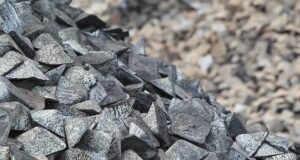
In January-September of this year, Ukraine increased its exports of processed cast iron in physical terms by 62.2% compared to the same period last year, to 1 million 401,147 thousand tons.
According to statistics released by the State Customs Service (SCS) on Wednesday, during the specified period, cast iron exports in monetary terms increased by 65.4% to $548.121 million.
At the same time, exports were mainly to the United States (79.62% of shipments in monetary terms), Italy (9.64%), and Turkey (3.13%).
In the first nine months of this year, the country imported 38,000 tons worth $76,000 from Germany (51.32%) and Brazil (48.68%), while in January-September 2024, 25 tons of pig iron worth $60,000 were imported.
As reported, on March 12 of this year, in accordance with President Donald Trump’s decision, the US began imposing a 25% tariff on imports of Ukrainian steel products, except for cast iron.
In 2024, Ukraine reduced its exports of processed cast iron by 3.4% in physical terms compared to 2023, to 1 million 290.622 thousand tons, and by 6.1% in monetary terms, to $500.341 million. Exports were mainly to the US (72.64% of shipments in monetary terms), Turkey (8.03%), and Italy (7.30%).
For the whole of 2024, the country imported 38 tons of pig iron worth $90 thousand from Germany, while for the same period in 2023, it imported 154 tons of pig iron worth $156 thousand.
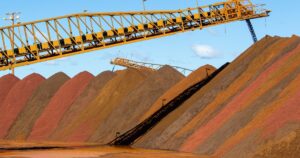
In January-September of this year, Ukrainian mining companies reduced their exports of iron ore raw materials (IORM) by 4.4% in physical terms compared to the same period last year, from 25 million 250,417 thousand tons to 24 million 145,038 thousand tons.
According to statistics released by the State Customs Service (SCS) on Wednesday, foreign currency proceeds from iron ore exports decreased by 16.7% during this period, from $2 billion 175.032 million to $1 billion 812.831 million.
Exports of raw materials were mainly to China (44.83% of shipments in monetary terms), Slovakia (16.9%), and Poland (16.58%).
In addition, in January-September 2025, Ukraine imported mineral resources worth $80,000 in the amount of 107 tons from the Netherlands (55%), Italy (28.75%), and Norway (16.25%), while in the same period last year it imported 813 tons worth $248,000.
As reported, in 2024, Ukraine increased its exports of raw materials by 89.8% compared to 2023, to 33 million 699.722 thousand tons, and foreign exchange earnings grew by 58.7%, to $2 billion 803.223 million UAH.
In 2024, Ukraine imported mineral resources worth $414,000 in a total volume of 2,042 tons, while in 2023, 250 tons of these raw materials were imported worth $135,000.
In 2023, Ukraine reduced its exports of raw materials by 26% in real terms compared to 2022, to 17 million 753,165 tons. Foreign exchange earnings amounted to $1 billion 766,906 million (a decrease of 39.3%). A total of 250 tons of mineral resources were imported for $135,000.
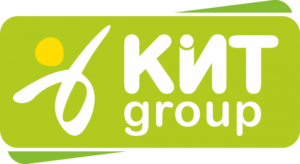
According to official information from the National Bank of Ukraine, the financial company LIBERTY FINANCE has passed the NBU inspection and continues to provide financial services in accordance with current legislation.
We would like to note that we have not received any official decisions from the Regulator, but we confirm our readiness to cooperate as an open and transparent company. All comments will be taken into account in a timely manner, which will further improve the current standards of quality and speed of service.
We would also like to emphasize that our operations are continuing as usual, and LIBERTY FINANCE customers have uninterrupted access to our secure and reliable financial services.
For reference. FC LIBERTY FINANCE is one of the largest operators in the Ukrainian currency exchange market and is also one of the largest taxpayers in its segment.
https://libertyfinance.com.ua/news/

Sound familiar? You have a solid vocabulary, you understand verb tenses, but when you start speaking, something goes wrong. People ask you to repeat yourself, you mix up words, and you feel like you don’t sound “English” despite all your efforts. This is one of the most common problems for adults learning English, and you are not alone.
The good news is that it’s not a lack of talent for languages. It’s a matter of physical habit. Your speech apparatus has been trained for years to pronounce the sounds of your native language, and now it needs a little “reprogramming.”
And you don’t need hours of boring exercises to do this. Just 15 minutes a day is your investment in the confidence, clarity, and naturalness of your English. This article is your personal fitness plan for your facial muscles, which will help you not only speak, but sound so that you are heard and understood the first time around.
If you’ve ever tried to say “three” and it came out as ‘sree’ or “tree,” know that it’s not your fault. It’s a scientific phenomenon called fossilization. Your brain and muscles are so accustomed to the sounds of Ukrainian that they automatically try to “simplify” unfamiliar English sounds, replacing them with familiar analogues.
To break this code, you need to understand three main differences between the sounds of our languages:
Our 4-week plan is built on these three pillars so that you can master the new “mechanics” of speech step by step.
Ready for transformation? Each day is a micro-training session consisting of three parts: 5 minutes of warm-up, 7 minutes of main task, and 3 minutes of practice and reinforcement.
Your mission: Prepare your articulatory apparatus for new, unfamiliar movements.
What we do: We start with a warm-up for the lips, tongue, and jaw. During the main part, we focus on sounds that are similar but not identical. For example, the English [p], [t], [k] are pronounced with a breath (aspiration), as if you were blowing out a candle. Practice by saying: pen, ten, key. To reinforce, record yourself on a voice recorder reading a simple text. This is your “point A.”
Your mission: Master sounds that do not exist in Ukrainian and learn to distinguish between similar vowels.
What we do: This week is dedicated to the “superstars” of English phonetics.
● Sounds /θ/ and /ð/: place the tip of your tongue between your teeth and gently blow air. For /θ/ (think, bath) — just air, for /ð/ (this, mother) — add your voice.
● Sound /w/: round your lips as if for a kiss and quickly open them. This is not the Ukrainian [в]! Practice: we, what, wine.
● Minimal pairs: Your secret weapon. Repeat pairs of words that differ by one sound to train both your tongue and your ear: ship/sheep, sit/seat, bad/bed, cat/cut.
Focus of the week: Stop speaking monotonously and start sounding like a native speaker.
What we do: Focus on the music of speech.
● Stress rhythm: Take a sentence and emphasize only the important (meaningful) words with your voice: “I went to the store to buy some milk.” Pronounce function words (I, to the, to, some) quickly and indistinctly.
● Intonation: Practice an upward tone for yes/no questions (“Are you ready?➚”) and a downward tone for informational questions and statements (“It’s a beautiful day➘”).
● Shadowing technique: This is your main tool. Turn on a 30-second audio recording (podcast, news) and repeat after the speaker in sync, trying to imitate their rhythm, pauses, and intonation. Don’t try to pronounce everything perfectly, just “dance” to the rhythm of their voice.
Your mission: Automate your new skills so that they become second nature.
What to do: The main exercise this week is “Shadowing”. Gradually increase the length of the excerpts to 1-2 minutes, using dialogues from movies and TV shows. Add reading aloud, but now consciously apply the rules of rhythm and intonation. At the end of the week, make a final recording of the same text as in the first week. Compare. You will be amazed at the difference!
Four weeks is a powerful start, but the path to mastery is a marathon. Here’s what will help you keep going.
Voice recording is your most honest feedback. Listen to yourself and analyze:
● Did I pronounce the /θ/ sound correctly in the word “think”?
● Is the rhythm of the sentence correct? Did I emphasize the article “the”?
● Was there a rising intonation in the question?
Modern AI tools, such as Pronounce AI, can analyze your pronunciation in real time and give you instant advice.
Use your smartphone as a trainer:
● Pronunciation apps: ELSA Speak is a pocket speech therapist that evaluates your pronunciation and gives you specific exercises.
● General language apps: Babbel and Memrise have listening and speech recognition features that will help you reinforce the correct pronunciation of words.
● Online dictionaries: check the pronunciation of new words in dictionaries such as Longman or WooordHunt, which offer audio versions of both British and American pronunciation.
Remember: your goal is not perfect pronunciation, but clear and confident speech. A slight accent is part of your identity. But when you control the sounds, rhythm, and intonation, you control the impression you make.
If you feel like you need support, Business Language is always there to help.
Consistency is more important than intensity. Those 15 minutes a day are not a boring chore, but an exciting game in which you discover new possibilities for your voice. Start today, and in a month you will hear the difference. And most importantly, others will hear it too.

The head of the Association of Small Cities of Ukraine, Pavlo Kozyrev, presented a national platform for rapid communication between communities, businesses, government agencies, and international partners called “Supermarket of Solutions for Communities.”
“This is a unique example of public-private partnership in the field of communication. We have created a space that brings together municipalities, businesses, donors, and experts, ensuring systematic cooperation and quality feedback,” Kozirev said at a press conference at the Interfax-Ukraine agency on Thursday.
According to him, the “Supermarket of Solutions” platform began operating on January 18, 2022, and after the full-scale invasion of the Russian Federation, it was transformed into a tool for humanitarian cooperation between communities and foreign partners.
“In the first months of the war, the platform became a channel of communication between Ukrainian communities and cities in other countries. It was through this platform that deliveries of clothing, medicines, equipment, and generators were organized. Now, the ”Supermarket of Solutions” is a digital ecosystem with over 17,500 registered users working in 27 thematic sections. Among the most visited areas are energy sustainability, grant support, and the use of artificial intelligence in municipal management,” he said
The AMMU chairman noted that the platform is a useful tool for a wide range of users.
“For businesses, the platform is a point of entry into the municipal market. For authorities and donors, it is an effective means of feedback from communities. And for municipalities, it is a space for finding partners, resources, and modern solutions for development,” he explained.
Kozyrev noted that the structure of the “Solution Supermarket” provides for two types of participants: speakers (solution providers) and residents (consumers, i.e., community representatives).
“Each user has a personal account. We also have a ‘warehouse’ where speakers can leave their presentations, manuals, analytical materials — anything that may be useful to communities. And all of this is available 24/7,” he added.
Separately, the head of the Association spoke about special sections of the platform, in particular the “League of Communities” — a training program for the professional development of municipal employees, the “Mayor’s Office,” where community leaders communicate in a club format, and the “Self-Renewal” section, dedicated to psychological support for local government employees.
“We understand that working in city hall is like being on a second front. Our job is to help people avoid burnout. In just nine months of 2025, 551 online events were held, attended by an average of 46 communities. The number of new users exceeded 3,300. As of now, the total number of users (municipal employees) of the platform is 17,510,” Kozirev emphasized.
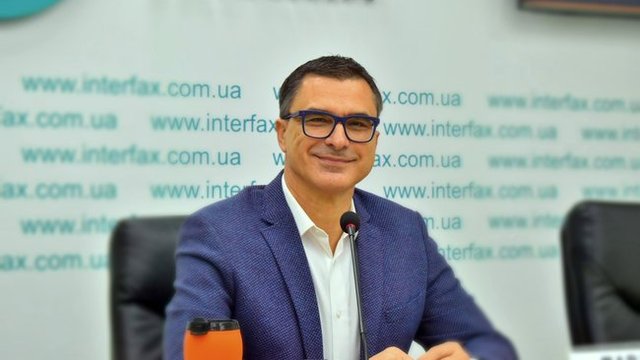
According to him, the platform is open to anyone who wants to contribute to community development — businesses, experts, donors, non-governmental organizations, and municipalities.
The Association of Small Cities of Ukraine has been operating since 1997 as a nationwide public association that supports the development of local self-government and the implementation of innovative solutions in communities.
The “Supermarket of Solutions for Communities” platform operates on a public-private partnership model: it is free for communities to use, and is financed by businesses, which are given the opportunity to present their products to municipalities.
AMMU (ASSOCIATION_OF_SMALL_TOWNS_OF_UKRAINE), SUPERMARKET_OF_SOLUTIONS, КОЗЫРЕВ
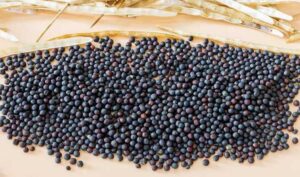
Rapeseed processing in Ukraine in 2024/2025 MY amounted to 0.5 million tons, or 14% of rapeseed production, according to the Ukroliyaprom association.
“It was not possible to use rapeseed for processing, as in the previous marketing year (when a record amount of over 1.0 million tons was processed), due to its massive export (almost 90% of its production). 3.1 million tons of rapeseed were exported, or over 86% of its production. Only over 0.5 million tons, or 14% of rapeseed production, was processed,” the industry association said.
Ukroliyaprom added that rapeseed oil exports in the 2024/2025 season amounted to 210,400 tons, worth $194 million, of which 153,500 tons (worth $144.1 million) were shipped to EU countries.
The top 10 countries purchasing Ukrainian rapeseed oil included China (48.3 thousand tons), Poland (46.1 thousand tons), Belgium (26.5 thousand tons), Lithuania (23.1 thousand tons), the Netherlands (15.2 thousand tons), Spain (13 thousand tons), Italy (9 thousand tons), Bulgaria (8.2 thousand tons), Germany (4.3 thousand tons), and Latvia (3.6 thousand tons).
Exports of rapeseed meal in 2024/2025 MY amounted to 218.5 thousand tons worth $53.9 million at an average price of $246.7 per ton. At the same time, 86.9% of rapeseed meal was supplied to EU countries, 9.9% was purchased by Israel, and 3.2% by Turkey.
The main importers of rapeseed meal were Spain (95.7 thousand tons), Hungary (39.7 thousand tons), Lithuania (21.4 thousand tons), France (15 thousand tons), Italy (5.9 thousand tons), Poland (5.5 thousand tons), Israel (21.8 thousand tons), and Turkey (6.9 thousand tons).
The processing season for rapeseed harvested in 2025 began in July of this year. In July-August, only about 60 thousand tons of rapeseed were processed into oil, which allowed for the production and export of 25.0 thousand tons of rapeseed oil.
At the same time, in September 2025, under the conditions of export duties on rapeseed, its processing at domestic enterprises increased to a record monthly volume of 250 thousand tons. According to Ukroliyaprom’s estimates, production reached 120,000 tons, of which 108,800 tons were exported for $121.9 million. This represents a 2.8- and 3.3-fold increase over the same period last year. The cost of one ton of exported oil increased in the current marketing year compared to the previous one to $1,120.4 per ton, or by $171.4 per ton.
The main consumers of Ukrainian rapeseed oil in September 2025 were EU countries, which imported 92 thousand tons from Ukraine, or 84.5% of the total exports of this product from Ukraine.
Among EU countries, the largest importers were the Netherlands, which purchased 29,000 tons of rapeseed oil, accounting for 27% of total exports, Belgium – 15,500 tons (14.2%), Spain – 14, 4 thousand tons (13.2%), and Poland – 13.5 thousand tons (12.4%).
16.8 thousand tons (15.5%) were exported to other countries, in particular, 13.9 thousand tons (15.5%) were exported to Singapore.
Ukroliyaprom reminded that on September 4, 2025, amendments to the law “On Export Duty Rates on Seeds of Certain Oil Crops” came into force, approving export duty rates of 10% of the customs value of goods for soybeans (UKTZED code 1201) and rapeseed (UKTZED code 1205). The association expressed hope for further positive results in the processing of rapeseed and soybeans, provided that the conditions for their processing remain in place.